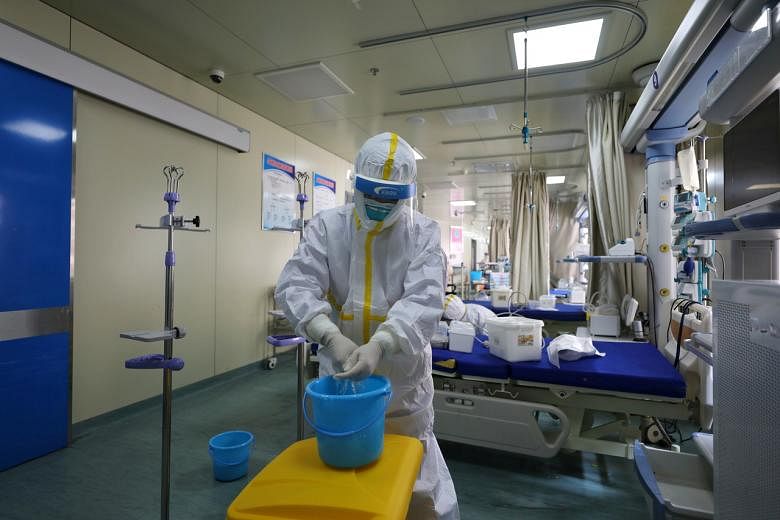MANILA (PHILIPPINE DAILY INQUIRER/ASIA NEWS NETWORK) - Last weekend, as Manila entered its first week of lockdown, our country lost one of its greatest minds to the coronavirus plague.
University of the Philippines professor Aileen Baviera succumbed to severe pneumonia not long after her recent return from Paris, where she most likely was infected. To many of us, Ms Baviera was more than a great scholar, she was also a generous mentor, a reliable friend, and an inimitably productive and resourceful colleague.
Despite her many accolades, Ms Baviera remained a soft-spoken and incredibly humble figure, serving as a once-in-a-generation inspiration for many younger scholars.
Throughout her life, she touched many lives with her loving heart and active mind, a truly dynamic leader at the intersection of academe, civil society, and government.
In an essay reflecting on her 40 years of observing and analysing China, Ms Baviera advised younger scholars to remain as objective and dispassionate as possible in their analysis.
As she put it, "Do not be emotionally invested in the subject of your study; you should try to maintain objectivity at all times, which can be quite difficult given the state of [Philippine-China] ties today."
Her loss has brought unfathomable sorrow to our hearts, with many likely to remain in a state of shock and bewildered anguish for some time. We should take her advice to heart.
For others, however, irrepressible rage will be the defining sentiment toward the Chinese leadership, which has been accused of systematic cover-up and the repression of whistle blowers when a Sars-like epidemic began being noticed last year. It's called Covid-"19", precisely because it emerged in 2019.
This rage is likely to intensify amid a major reversal in recent days. Italy, the destination of the ancient Silk Road, recently lost close to 800 souls in a single day. "A generation has died in just over two weeks. We've never seen anything like this and it just makes you cry," lamented a funeral director in Bergamo.
The city's local newspaper, L'Eco di Bergamo, dedicated 10 pages to obituaries in a recent issue. For Dr Fabiano Di Marco, the director of the respiratory unit of Bergamo's Hospital Papa Giovanni XXIII, "it's like a war." The Italian armed forces have reportedly been deployed to assist in the burial of the dead across the country.
In contrast, China has so far reported zero new infections, following a month-long lockdown of the entire Hubei province, where aggressive mass testing went hand-in-hand with draconian restrictions on the movements of over 50 million souls.
In a surreal turn of events, Beijing is now imposing strict restrictions on travellers from Europe and the Middle East.
Having managed the crisis at home, China is now engaging in a strategic offensive, portraying itself as the new global saviour by deploying doctors and medical equipment to worst-hit nations across the world.
Eager to deflect blame, China has also officially endorsed bizarre conspiracy theories, including the pathetically baseless accusation that the Pentagon may be behind the pandemic, even though the United States itself is now among the worst-hit nations.
The question of accountability will inevitably gain traction as the pandemic tightens its grip on humanity. And this brings us to the question of why we got here to begin with, and how to explain the recurrence of epidemics in China.
China expert Minxin Pei explains that the pandemic is partly due to "pathological secrecy (that) hobbles the authorities' capacity to respond quickly to epidemics," because "to maintain its authority, the Communist Party of China must keep the public convinced that everything is going according to plan."
An exposé by investigative journalists at China's Caixin Global revealed that scientists were instructed to destroy the evidence of a new Sars-like virus last year.
Whistle blowers such as the heroic Dr Li Wenliang, one of the "brave eight" heroes, were harassed and forcibly repressed.
As one Wuhan-based journalist lamented, "Everyone must understand, first of all, that this epidemic was allowed to spread for a period of more than 40 days before… any decisive action was taken."
US President Donald Trump's seemingly racist use of the term "Chinese Virus" to refer to Covid-19, as well as a recent US$20 trillion ($29 trillion) suit filed in Dallas against the Chinese regime, are telltale signs of the rage to come.
As much the world welcomes test kits, masks, and medical equipment from Beijing, it is also seeking accountability.
The writer is an opinion columnist with the paper. The Philippine Daily Inquirer is a member of The Straits Times media partner Asia News Network, an alliance of 24 news media entities.











